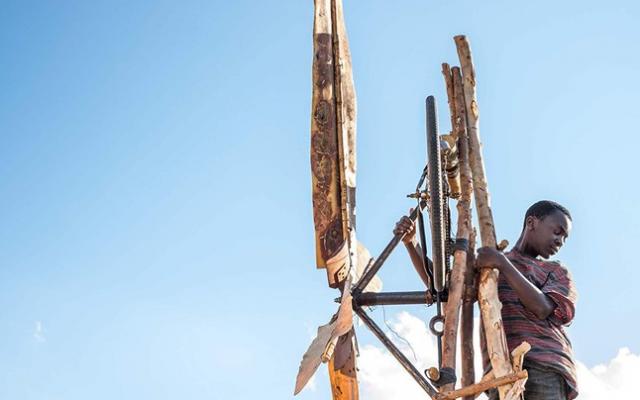
This two-part event will challenge the understanding of various approaches in tackling climate change and implementing sustainable practices. Starting with William's personal journey and expanding into international interventions and local efforts, the conversation will inspire attendees to become proactive in shaping resilient responses to climate change. This session will explore the difference between individual efforts and international policies: two approaches in promoting sustainable development and efforts to solve the impacts of climate change in susceptible areas around the world.
Those who register to attend will be entered in a raffle to receive a signed copy of The Boy Who Harnessed the Wind.
This event is hosted by Princeton's Chapter of UNA-USA and co-sponsored by Princeton in Africa, Princeton Campus Conversations on Identities Decision, the Office of the Dean of Undergraduate Students (ODUS), National Society of Black Engineers and the Keller Center.
Speaker Bios
William Kamkwamba is the author of the New York Times bestselling memoir The Boy Who Harnessed the Wind, co-authored with Bryan Mealer, and in the Netflix film adaptation, directed by Chiwetel Ejiofor, which was awarded the Alfred P. Sloan Prize at the Sundance Film festival. Working from just one photo in a U.S. junior high school textbook book called “Using Energy,” he reasoned out how to build an electricity-producing windmill from spare parts and scrap, despite having no instructions. After graduating from Dartmouth College in Environmental Studies, William began work as a Global Fellow for the design firm IDEO.org. William is an entrepreneur, TED Fellow, and has worked with the WiderNet Project to develop appropriate technologies curriculums focused on bridging the gap between “knowing” and “doing” for young people in Malawi and across the world. William splits his time between the U.S. and Malawi and is currently working full-time with the Moving Windmills Project to bring the Moving Windmills Innovation Center to life in Kasungu, Malawi.
Michael Oppenheimer is the Albert G. Milbank Professor of Geosciences and International Affairs in the Princeton School of Public and International Affairs, the Department of Geosciences, and the Princeton Environmental Institute at Princeton University. He is the Director of the Center for Policy Research on Energy and the Environment (C-PREE) at the Princeton School of Public and International Affairs and Faculty Associate of the Atmospheric and Ocean Sciences Program, the Princeton Institute for International and Regional Studies. He is a long-time participant in the Intergovernmental Panel on Climate Change (IPCC) that won the Nobel Peace Prize in 2007, serving currently as a Coordinating Lead Author on IPCC’s Special Report on Oceans, Cryosphere, and Climate Change and as a Review Editor on the Sixth Assessment Report. Oppenheimer served previously as a member of several panels of the National Academy of Sciences as well as the National Academies’ Board on Energy and Environmental Studies. He is also a winner of the 2010 Heinz Award and a Fellow of the American Association for the Advancement of Science. Oppenheimer is also co-editor of interdisciplinary scientific journal, Climatic Change and serves of the New York Panel on Climate Change, providing technical advice to the City.
Nadia Ralston '22 (Moderator) is a junior pursuing a degree in environmental engineering with a focus on carbon sequestration and renewable energy. With a strong passion for international sustainable development, she is involved in Engineers Without Borders, UNA-USA, and various other organizations. Nadia is a graduate of Keller Center's eLab Summer Accelerator, and the co-founder of Reclaim Energies, a clean energy startup that strives to build out novel tech solutions to harness hydroelectric power and revolutionize the way in which society uses wastewater. Nadia enjoys outdoor activities, such as backpacking, playing sports, and art, including painting, drawing, and photography.
Who can attend?
Open to students, postdocs, research scholars, faculty, staff, and alumni.
Contributions to and/or sponsorship of any event does not constitute departmental or institutional endorsement of the specific program, speakers or views presented.